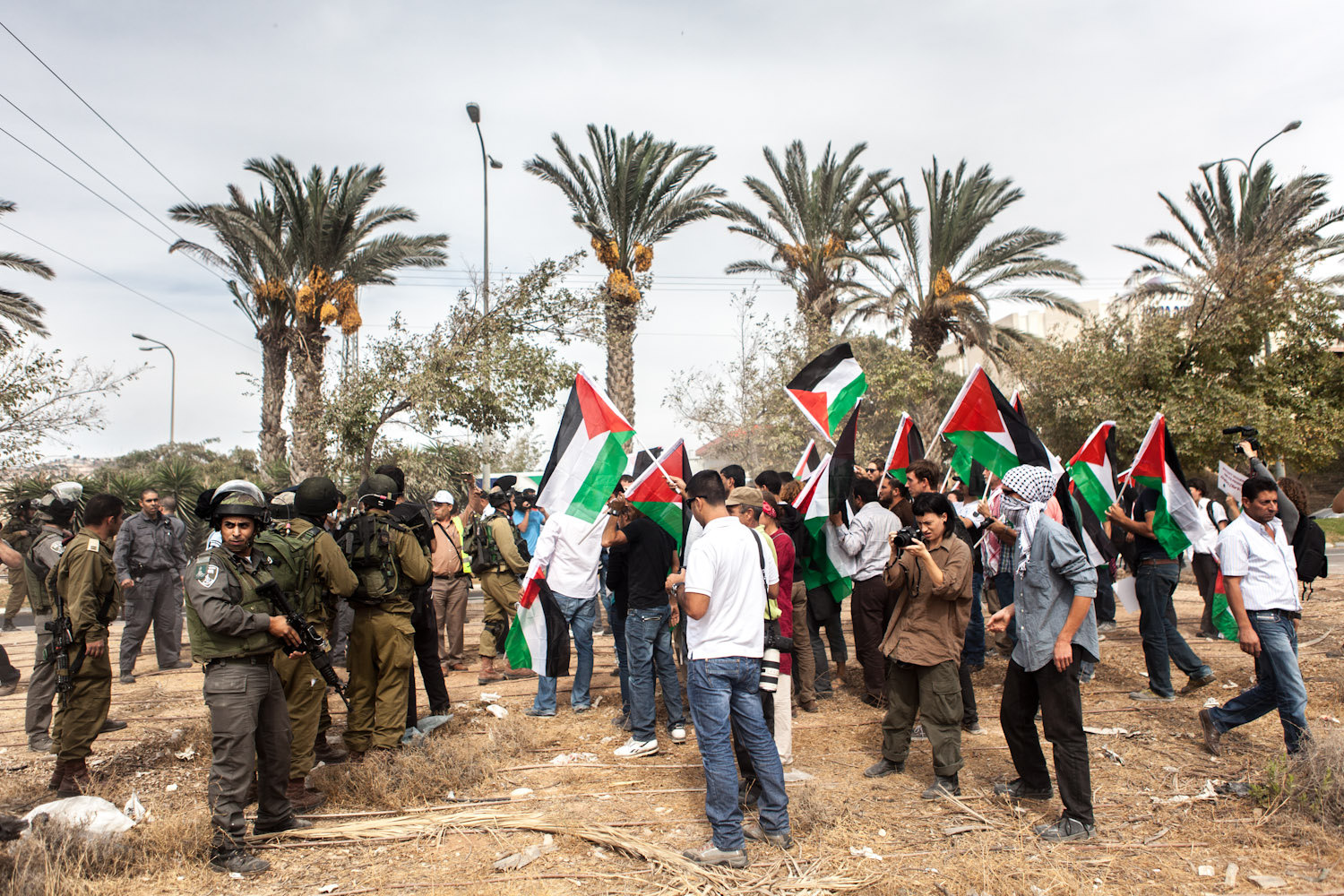Tag: Deportation
-
Two ISM activists facing deportation after new protest village ‘Canaan’ update
Update on 10 February: All Palestinian activists arrested at protest village ‘Canaan ‘ released ISM activist on huger strike! Dave and Marco are being held in Givon prison and are expecting deportation. One of them, Marco Di Renzo (54), has decided to start a hunger strike from tonight in solidarity with Palestinian political prisoners and…
-
URGENT – FUNDS NEEDED – International activists threatened with illegal deportation – UPDATED
25 October 2012 | International Solidarity Movement, West Bank DONATE HERE: https://palsolidarity.org/donate/ ————— UPDATE 26th October: international activist Elyana Belle, currently fighting an illegal deportation order, reports on her arrest and detention: During her arrest, Elyana received blows to her head and injuries to her neck by four Israeli police officers who dragged her from…
-
‘Welcome to Palestine’: Israeli court challenges deportation orders
13 July 2011 | Welcome to Palestine Bethlehem and Jerusalem, July 13, 2011. Court dates have been set for noon today and tomorrow at 9 am for the court challenges of “Welcome to Palestine” participants against the deportation orders of the Israeli government that they and their attorneys consider illegal. The hearings will take place…

